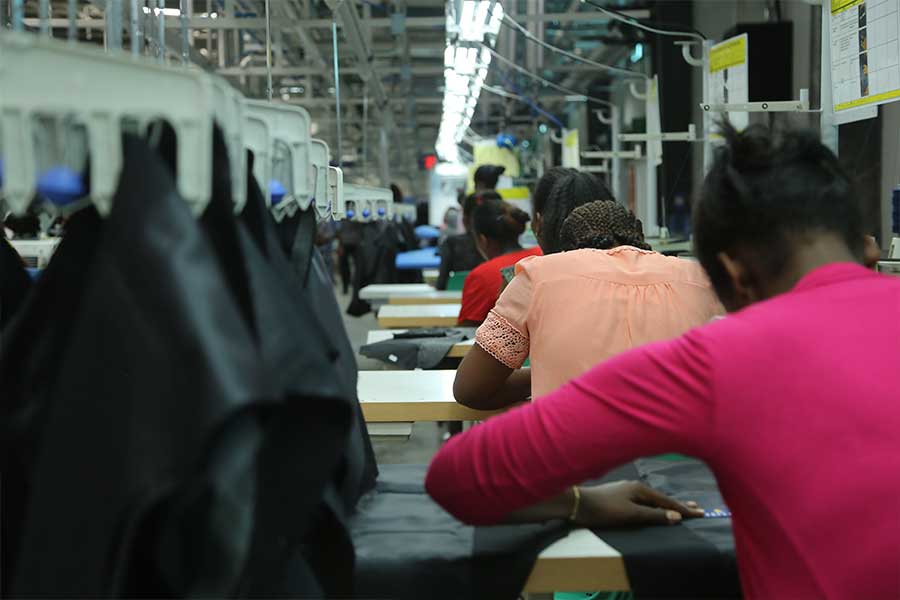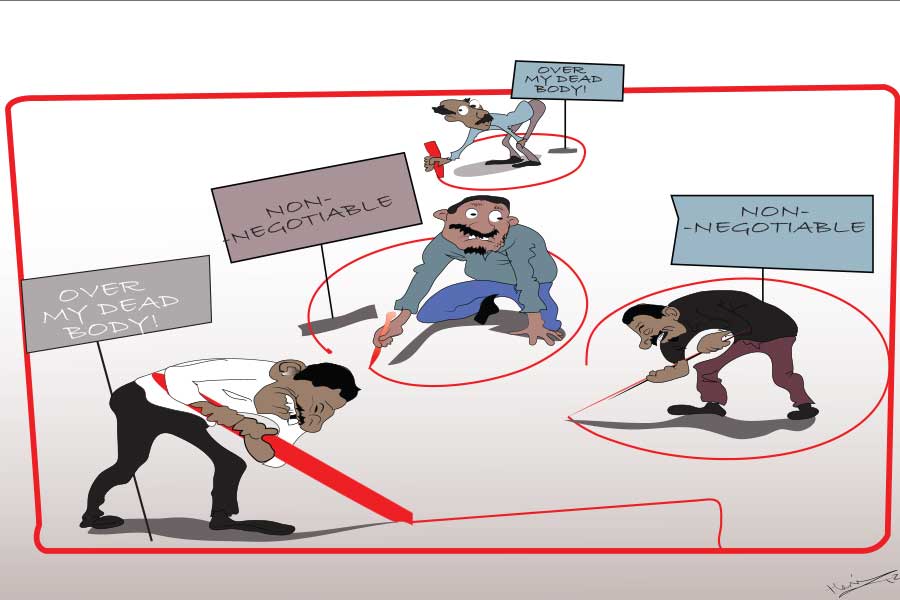
Agenda | Oct 24,2020
Mar 14 , 2020
By Shewangezaw Seyoum
The chances of violence in the coming election is very high. The only way to mitigate this is to find the political goodwill to adhere to the constitutional order and develop concrete action plans and strategies, writes Shewangezaw Seyoum (swsm02@yahoo.com), a consultant who works at the Industrial Projects Service - a consultancy house under the Industrial Parks Development Corporation. Views expressed here do not represent that of any organization.
The sixth national election, scheduled to take place on August 29, 2020, will be a landmark event. Regardless of the outcome, the consequences will significantly affect the political, social and economic conditions of the country for at least the next decade. Handled properly, the election will further the status and evolution of Ethiopia as a multiparty electoral democracy.
The campaign season has not started yet but accusations and counter-accusations have become rife over the past few months. Opposition parties are regularly complaining that they are unable to hold campaigns and organise. They are also accusing the incumbent Prosperity Party (PP) of continuing to intertwine party and government, tainting the independence and transparency of democratic institutions thought to have been on the right path since the election of Prime Minister Abiy Ahmed (PhD).
The Prosperity Party has also been alleging that some of the opposition parties are in the business of wrecking havoc, threatening the stability of the country and engaging in at best unhelpful and at worst destructive behaviour.
In this environment, we may be inclined to forget that we are in a pre-election season. As August approaches, the competition for political power will heat up. There may be some promise in the strengthening of the security infrastructure, but the absence of effective coalition-building and structural weaknesses - evident in the nationalistic base of political parties – presents a major problem.
In a political terrain characterised by intense partisanship, ideological conflict does not always remain ideological. It will severely harm competition, as parties continue to galvanise their bases using harsh language, maintain poor organisation, lack ideological clarity and have the inclination to resort to violence.
The only way this could change is if the political parties find the goodwill to adhere to the constitutional order and develop concrete action plans and strategies to galvanise their political bases.
During an election season, political parties draft manifestos, electoral policies and programmes. Political parties begin with constitutions that specify their structures, responsibilities, policies, long-term goals, and the qualifications for and duties of membership. With every new election, they develop manifestos that identify the sociopolitical and economic shortcomings of the country, explain how they intend to address them and lobby voters on why they deserve to form a government.
These policies and programmes should not be taken for granted. They are not ad hoc nor a matter of formality. In some countries, leading parties hold annual conferences each summer to explain their prospective policies to members and key stakeholders and to communicate progress made in the past year. In others, party conventions are as much a forum for nomination as an opportunity to chart new policy directions for the parties concerned through carefully drafted keynote addresses delivered by the most promising and articulate members of the organisation.
Few political parties other than PP are currently taking these steps. Indeed, it is hard to deny the advantages incumbency confers. PP, unlike most of the others, commands considerable human and financial resources that enable it to generate party programmes and policies and introduce them to the public. The opposition’s lack of these same resources impacts their ability to develop economic and political programmes, but it is not enough of an excuse for the almost complete disregard for policy writing and debates most have shown.
There is no substitute for democracy as a government system. But it is dependent on democratic institutions, including effective and organised political parties. Political parties are crucial actors in bringing together diverse interests, recruiting and presenting candidates, and developing competing policy proposals that provide voters with a choice. Ethiopian political parties have consistent weaknesses in party organisation, recruitment, funding and policy formulation that are further exacerbated by diverse and complex political and developmental challenges.
Ethiopian political parties, in the firm belief that it is possible to achieve electoral victory by adhering to the constitutional order, should work to address some of their own shortcomings, at least as much as they are busy accusing one another. This would go a long way in improving the credibility and peacefulness of Ethiopia’s coming national election.
PUBLISHED ON
Mar 14,2020 [ VOL
20 , NO
1037]


My Opinion | May 23,2020

Editorial | Jan 04,2020

Radar | Jan 21,2023

Editorial | Sep 06,2020

Editorial | Feb 01,2020

Photo Gallery | 179762 Views | May 06,2019

Photo Gallery | 169962 Views | Apr 26,2019

Photo Gallery | 160921 Views | Oct 06,2021

My Opinion | 137203 Views | Aug 14,2021

Dec 22 , 2024 . By TIZITA SHEWAFERAW
Charged with transforming colossal state-owned enterprises into modern and competitiv...

Aug 18 , 2024 . By AKSAH ITALO
Although predictable Yonas Zerihun's job in the ride-hailing service is not immune to...

Jul 28 , 2024 . By TIZITA SHEWAFERAW
Unhabitual, perhaps too many, Samuel Gebreyohannes, 38, used to occasionally enjoy a couple of beers at breakfast. However, he recently swit...

Jul 13 , 2024 . By AKSAH ITALO
Investors who rely on tractors, trucks, and field vehicles for commuting, transporting commodities, and f...

Nov 1 , 2025
The National Bank of Ethiopia (NBE) issued a statement two weeks ago that appeared to...

Oct 25 , 2025
The regulatory machinery is on overdrive. In only two years, no fewer than 35 new pro...

Oct 18 , 2025
The political establishment, notably the ruling party and its top brass, has become p...

Oct 11 , 2025
Ladislas Farago, a roving Associated Press (AP) correspondent, arrived in Ethiopia in...

Nov 2 , 2025
The National Bank of Ethiopia (NBE) has scrapped the credit-growth ceiling that had s...

Nov 2 , 2025 . By SURAFEL MULUGETA
The burgeoning data mining industry is struggling with mounting concerns following th...

Nov 2 , 2025 . By YITBAREK GETACHEW
Berhan Bank has chosen a different route in its pursuit of a new headquarters, opting for a transitional building instea...

Nov 2 , 2025 . By BEZAWIT HULUAGER
Nib International Bank S.C. has found itself at the epicentre of a severe governance...